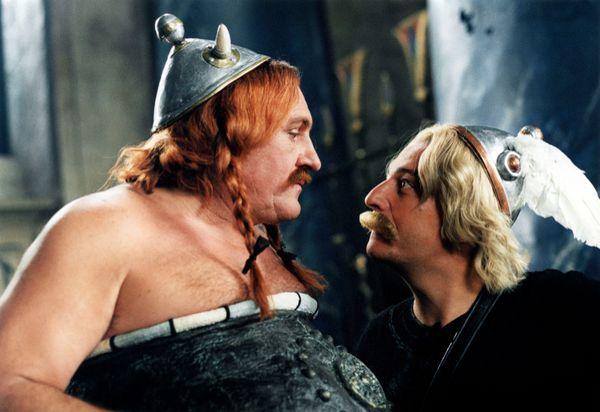The saga of the little Gallic hero is an excellent opportunity to playfully familiarize yourself with our great writers: today we rediscover references to three major works of French literature, all placed under the sign of humour!
To discover
Crosswords, arrow words, 7 Letters... Play everywhere, all the time with the Le Figaro Games application
Pierre Corneille
The Domain of the Gods, 17th opus in the Asterix series, published in 1971, shows the eponymous hero specifying that the construction of a building will cause "crows" pain, to which Panoramix adds by saying: “Yes, it's a Cornelian problem, among others…” This is a pun that relies on homography and homophony.
The term "crow" makes it possible to simultaneously invoke a bird and the great playwright of the seventeenth century;
this offers the opportunity for a tasty demystification of the famous notion of the “Cornelian dilemma”, a complex and conflicting choice between two morally irreconcilable situations.
One thing is certain: René Goscinny was not yelling at the crows when writing his screenplay.
Cyrano de Bergerac by Edmond Rostand (1897)
How not to mention this cover of the cult tirade uttered by the timeless Cyrano de Bergerac?
We find it in Caesar's Gift, the 21st issue of the series, dated 1974:
-(Romeomontaigus) "You have a big nose...a very big nose!"
-(Asterix) “It's not very funny, Romain!
You could have said: it's a menhir!
What am I saying, a menhir?
It is a dolmain!”
If the process of ascending gradation, wanted by Rostand, is maintained, the tirade of the nose is no less parodied, thanks to the use of two landscape elements of ancient Armorican Brittany.
The humorous effect is produced by the discrepancy between the lyrical and sublime style of the spoken words and the triviality of the situation, namely a sword duel with a spongily booze-soaked Roman legionnaire (some roads lead to rum).
The Punishments of Victor Hugo (1853)
Finally, let's end with the most spun allusion: the 24th album, entitled Asterix among the Belgians and published in 1979, abounds with nods to "L'Expiation", a poem which evokes the Russian campaign led by Napoleon I, from des Châtiments, poetic and political collection of Victor Hugo.
The following two quotes are particularly funny:
“Waterzooie!
Waterzooie!
Waterzooie!
Dull dish!”
(Original text: "Waterloo! Waterloo! Waterloo! Morne Plaine!").
That's another pun, by Toutatis!
This is based on paronymy, that is to say the writing of words whose spelling and pronunciation turn out to be very similar.
The objective is perhaps to tease the cuisine of the flat country a little, once.
“And, triarii, principles with caligae of leather, / Hastati of whom Rome made legionnaires, / Velites, sagitarii, who trailed their manes / Wearing clipeus and leggings of metal, / All those of Alesia and those of Pharsalia…” ( Original text: “And, lancers, grenadiers with ticking gaiters, / Dragoons that Rome would have taken for legionnaires, / Cuirassiers, gunners who dragged thunders, / Wearing the black colback or the polished helmet, / All, those of Friedland and those of Rivoli”).
Pastiche by Goscinny, this rewriting retains a solemn appearance, since it is constructed from the military lexicon of ancient Rome (mentioned moreover once by Hugo himself), and presents a metrical regularity as well as an alternation rhyming, like the original poem.
Humor is indeed serious business,
If one day we won't be able to joke around with serious subjects, it's because the sky will have fallen on our heads!

